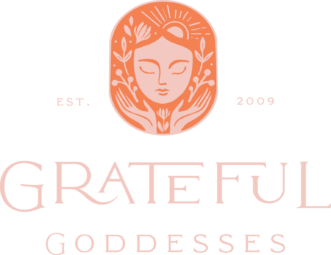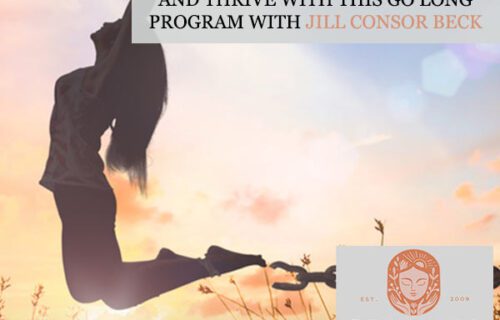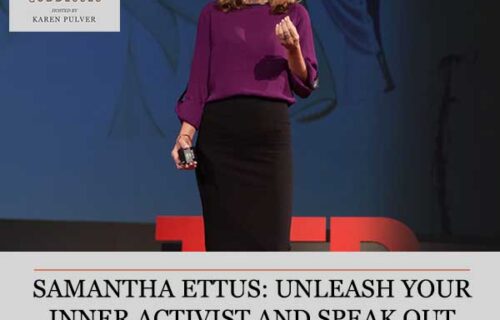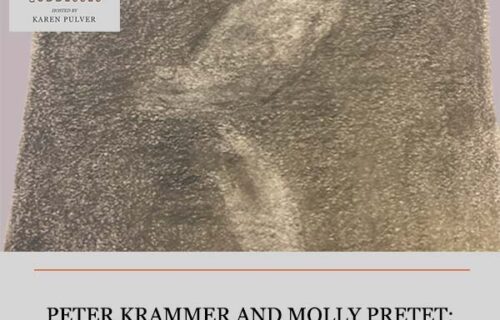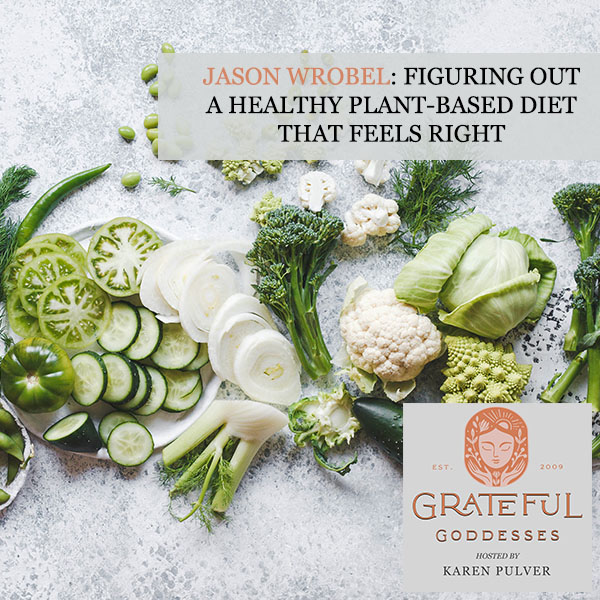
Jason Wrobel: Figuring Out A Healthy Plant-Based Diet That Feels Right
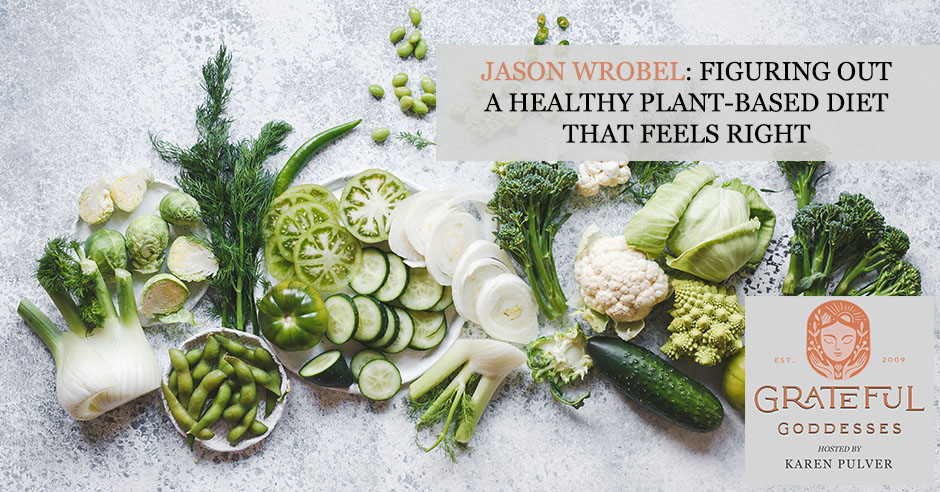
Choosing to have a healthy lifestyle should not be an all-or-nothing approach. There’s no one formula for health that works for everybody, and it’s important to respect your individuality to really achieve optimal health. Today, Karen Pulver and the Goddesses are joined by Jason Wrobel, plant-based chef and author of Hay House cookbook and lifestyle guide, Eaternity, as they talk about how anyone can transition into a more plant-based diet by developing intuition with food. It’s all about taking the time to listen to your body and figuring out your makeup. Whether you are vegan, plant-based, pescatarian, omnivore, low carb, no-carb, no sugar, or whatever diet or lifestyle you’re pursuing, there’s something you can take from today’s episode to help you on the road to overall wellness.
—
Watch the episode here
Listen to the podcast here
Jason Wrobel: Figuring Out A Healthy Plant-Based Diet That Feels Right
I’d like to read you a passage. What if I told you that by adding a few simple delicious new foods to your current lifestyle, you could pump up your libido to levels unseen since the days of Greek Dionysian orgies? You better go stitch yourself a new pair of fig leaf underwear because I’m going to turn you into a superfood sex god or goddess before you know it. I want it to be that sex goddess so I made myself a watermelon, pomegranate, lime, mint salad for my lunch because according to our guest, Jason Wrobel this is going to increase my libido. I can’t wait to eat it and then have a nice afternoon delight. On a serious note, it is true that if you do eat plant-based that it can have a lot of amazing positive effects on your lifestyle.
Ironically, I met Jason Wrobel at a dental conference of all places. He was giving a talk on how to live to 100. I was happy that someone was validating the way that I had already been eating and how great it made me feel. There were a lot of questions I had that he answered. He was so incredible that I went up to him afterward. I talked to him about the way that we’re eating but I also loved his personality. I felt this connection that he is going to help me. I can’t explain what it was but it was this intuition that I have to reach out to him. Sure enough, he coached me to do this show. He lifted me up. He is compassionate and supported me. I might even get emotional because I had a moment of doubting myself that I could do this. I called him one night and he talked with me about, “You can. You can do this.” He’s encouraging. Jason, welcome to the show.
It’s good to be here, Karen. It’s wonderful to see the genesis of this wonderful show and your shared vision come to life. We were talking about you resurrecting and expanding this vision, bringing your message, your goddesses to the world and here we are. I know it might not feel that way to you but it feels to me like it happened quickly. I couldn’t be more excited to share this vision with you and also be a guest. My heart feels full.
I wanted to share it with you because you did understand my vision and you were helpful along the way. I’m nervous. I was telling you this before because you’re my teacher and I’m being graded. Hopefully, I’ll get an A-plus from you. Jason, you have many roles and I would love to talk with you about that. You’re a coach and you eat plant-based. Can you talk with us about all the many hats that you wear?
This is an interesting topic because I feel like 2021 for many reasons has been such a roller coaster. It’s been such a year of pulling back and questioning where my heart is. I’ve been on this track for many years of being primarily known as a chef and a nutritionist. I got my TV show on Cooking Channel and of the books that I’ve published. Most people that know my work would associate me with being a plant-based chef and a nutrition educator. I’ve had many passions ever since I was a little boy. My mom and my family figured out quickly that I couldn’t be held to one track and I was always interested in multiple things that one time.
I’ve been singing in twelve different bands over the last years. When I lived in Chicago for 3.5 years, I sang in a band called The Modern Joy. We did it all around Chicago, played in the Metro, the Abbey and in a lot of the venues in Chicago. I have a lot of love for Chicago. I went to Columbia College there and got a degree in Marketing and Theater. I’ve been in marketing and acting, known as a chef and a coach. I’ve looked at Enneagram and many different kinds of personality types. One thread I’ve noticed is that I’m interested in a lot of different aspects of life. It’s been difficult for me to pick one thing and stick with it for my whole life.
I know this is probably a bit tangential but I always compared myself to other people and thought, “How could someone just be a guitar player or be a doctor their whole life?” I envied those people of, “Why can’t I pick one thing and that’s my thing and track for the next 60 years of my life?” I had to surrender to the fact that I’m not wired that way. I’m curious about life. I want to experiment and gain proficiency with different things. The long answer is I have a zest and a taste to experience as many aspects of life as possible and therefore, I have a lot of different passions.
Eating does not have to be an all-or-nothing approach. Share on XYou are our third male goddess. We always talk about the characteristics of a goddess and it sounds like you have that. You have curiosity, passion, joy and happiness. You also are involved in helping organizations. I know that you reached out to people about a cat that was left. What was that organization called?
There’s an animal rescue organization here in Los Angeles where I live called Little Love Rescue. They’re small. They’re not on the level of ASPCA or Humane Society. A friend of mine has been running it for many years. She needed some extra support especially during the time of quarantine and COVID. I’ve always had such a deep connection to animals. Even as a little kid, I was running around the neighborhood trying to rescue all the animals. Later on, going plant-based and vegan, I’ve always had a deep, passionate connection to supporting animals.
I’ve been involved with them and with the feeding of the homeless here in Los Angeles. During the economic devastation we’ve been in during COVID, the number of homeless people in Los Angeles has increased exponentially. I’ve been involved with an organization here called The Martha Project which is also a nonprofit that gets donations of food and we make fully organic plant-based meals. Good stuff, Thai food, burrito, Italian food. A few times a month, we will get together and package about 200 meals and then go and deliver them to the homeless around the city of Los Angeles. As an aside, this is near and dear to my heart because near the end of my father’s life he was homeless. My dad was on the streets. For me, it’s an opportunity to give back because that touches my life having experienced one of my parents being homeless.
You’ve taken all the lessons that you’ve learned and all the experiences that you’ve had in your life and you’re doing what you love to do. There’s nothing wrong at all with trying out many different things. My generation is like, “Pick one thing.” You are younger than me and it’s totally fine to do all that to maybe find certain things and paths that you want to explore more. Our Featured Goddesses are going to join us now. Camille would like to start.
Thanks for joining us. You mentioned all your different passions and having to go through figuring out that you’re not meant just for one. My original question was, “How did you choose your first passion whether it’s vegan chef or coach and why?” All these different paths that you went through, I’m curious what has been your main focus moving forward? What do you think you’re going to concentrate more on?
A lot of people don’t know I also have this side of being an actor for many years. That was my OG passion. When I graduated from Columbia in 2000, I had a Marketing and Theater degree. I did a lot of improvs there and theater. A side-hustle for the last several years, I’ve been in five different commercials. The acting thing has always been in the background. It’s been there ever-present for many years in different versions. It’s interesting you asked this. I always have felt no matter what I’m doing that if I can be with people whether that’s on a stage, I love connecting with people.
That’s been the thread through with everything that I’ve done whether that’s been the acting or the music and being in twelve different bands. I’m primarily doing the coaching and the vegan cheffing. I want to use art, creativity and my personality to not just connect deeply with people, learn about who they are, what makes them tick but more so, how I can be of support? There’s always been something in me that if I can give love, wisdom and foster a deep connection with people for the hope of bettering their life, that’s the common thread through for everything.
There’s been this interesting debate online with a lot of my friends that are musicians and actors that are struggling because they’re used to being on tour, onset, the importance of artistic expression and creativity to heal not only our hearts and our souls but humanity and this debate about what’s essential. Certainly to me, there’s no debate that healthcare workers and a lot of the positions that we’ve deemed essential absolutely are. I want to go on record, I think that artists are extremely essential for the collective healing of our psyche and our hearts especially when there’s so much anxiety, stress, depression and uncertainty.
Camille, the long answer to your question is artistry and connection are the foundations of what I want to do in the world and however that expresses themselves. I’m surrendering to whatever wants to come through. That’s been hard because I have a tendency to want to control things and know like, “This is my title and this is what I’m doing.” 2021 has been a teacher like, “You don’t know what’s happening. You don’t have any certainty. Stop trying to control everything.” Legit moving forward, I’m trying to surrender and obey the messages I’m getting. Whether you want to call it God, universe, spirit or whatever title people are comfortable with. I’m trying to listen better and see how I can be of service.
You bring up a great point about art being essential because all of us would agree that we were all binge-watching or listening to more music. We were all in debt to art during the beginning of the pandemic. You’re completely 100% right. Speaking of that whole coaching and cheffing, if you had to talk to us before, I was completely anti-plant-based but a certain person made me watch a movie. I’m curious if you can share what tips you can give? When you became vegan and plant-based, how and why did you do that? Maybe I can learn for myself how to be more plant-based and vegan.
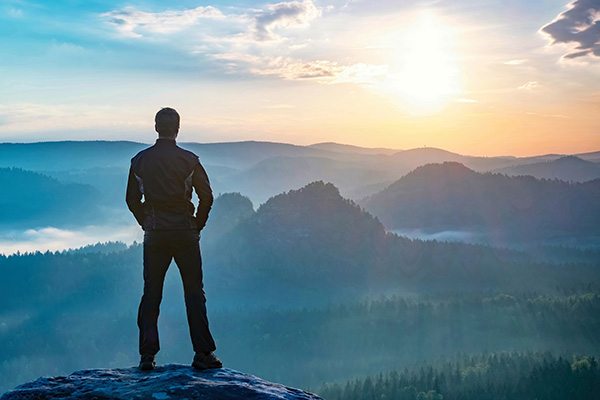
It’s funny that you made that expression because there’s no shame in the game. What I mean is for a lot of people that I’ve coached and talk to whether they’ve been clients or friends and family that are curious why I eat and live the way that I do, it doesn’t have to be a cold turkey. I say this and it’s funny because vegans don’t eat turkey. It doesn’t have to be an all-or-nothing approach. My girlfriend has been eating more plant-based and she’s like, “I feel it’s got to be all-or-nothing. I feel I’ve got to have both feet all the way in the pool or nothing at all.” I said, “Nothing in life has to be that extreme.” Instead of black and white, there are areas of gray in between. There many gradations and gradients.
When I started, it was my desire to re-landscape my family’s health history. It was the mid-‘90s and I was eighteen years old. My grandfather was dying of cancer and it was his second bout with cancer. I remember that affected me. It was the first significant death in my life at eighteen. There was that component of trying to emotionally internalize or process my grandfather’s death who I was close to. I started to zoom out a little bit and I looked at my family’s health history. There was this attitude in general of like, “That’s what happens. You get older, get a disease and die.” I thought, “There’s something about this that doesn’t sit with me. What do you mean that happens? That’s weird. I don’t understand why that’s an acceptable expectation of how we end our lives.”
The internet had just come out. This was in 1995. I’m sitting with my dial-up waiting fifteen minutes for the pages to load on AOL, Netscape Navigator and all those old-school things. I started to voraciously research food. I wanted to know more. I had no nutritional upbringing. For most of us, we don’t necessarily have a family we grew up in where we’re taught how to eat right. We don’t learn about what foods have vitamin C in them? Why is vitamin C important? What has B vitamins? What is protein? I certainly did not have that kind of upbringing where that was explained to me.
Vegan eating is beyond just a diet but also a lifestyle. Plant-based eating is strictly looking at diet and nutrition. Share on XFor the first time in my early twenties, I started to research nutrition in food and what was in our food supply. I did it gradually over the course of about 3.5 years. I grew up in Detroit so it was coney dogs and deep-dish pizza. I was a hardcore junk foodetarian. I worked and get a triple at Wendy’s. That wasn’t even on the menu. You had to go off-menu for a triple at Wendy’s. I had to unhinge my jaw like an anaconda to fit that burger in my mouth. That’s what I was rolling.
Three and a half years later, I started to take one thing out at a time gradually. I’m taking out the beef and veal. I’m experimenting with taking out the chicken. The more that I remove those animal foods from my diet gradually, replace them with other sources of protein and other nutrient-dense foods, I started losing weight, my skin was clearing up and I felt so much better. After I started that journey, I was in my mom’s kitchen in Detroit and I said, “Mom, I got to tell you something.”
She thought that I was going to come out to her like, “Is he going to tell me he’s gay?” There’s that energy of like, “I’m not gay, mom.” She’s like, “I wouldn’t mind if you were or you weren’t.” I love my mom so much. She’s amazing. I said, “It’s similar. I’m vegan now.” It was weird for me to even say it because that was not my intention. I wasn’t trying to be vegan. That wasn’t the goal. It was just that I started taking out animal products one by one and replacing them with more nutrient-dense plant foods. I was like, “This is the best I’ve ever felt in my life.” I’ve been doing it for many years and I never looked back. I still feel great.
Vegan and plant-based, what is the difference?
My understanding is that veganism as a lifestyle is beyond diet and what you eat. In the sense that vegans will not buy leather, wool and silk products. They look at whatever industries are utilizing animals for commodities and they choose not to participate in that. Whereas plant-based from what I understand is strictly looking at nutrition and diet in what we eat. Veganism is a broader all-encompassing ethical philosophy, a guiding ethical principle of, “We’re not going to use animals in clothing, food and transportation,” which is technically impossible. They use animal fat in the galvanization of tires. If you have a car even if your car doesn’t have leather in it, they’re still using animal products to create the tires and some of the components. The point is to try and eliminate as much animal usage in your life. Whereas plant-based is like, “I’m not going to eat things that come from animals.” That’s the difference.
What do you categorize yourself as?
I use them interchangeably because they’re both accurate in the sense that I have focused my diet since 1998 on plant-based where I’ve utilized all my meals and diet from plants. I choose not to buy leather shoes. There are some great companies out there that have some amazing boots and beautiful shoes that don’t use leather. It’s a lot easier now to find high fashion stuff because I like my shoes. I like nice things. If you were to look at my closet, you’d be like, “He doesn’t have parkas, ponchos and hippie stuff.” I try and go that extra mile to be as vegan as possible. It’s not an absolutist thing.
I like to drive a nice car. I have a nice motorcycle. I like nice things. I try and be as mindful of extending compassion in my choices. One of my biggest things ever is we have this thing where we vote every few years whether that’s the presidential election or local candidates. I’m passionate about politics and my beliefs. Every single day, we have a chance to vote with our dollars whether the food, car or beauty care that you buy every day. Every single time you go online, you go to Amazon or to the market, you have an opportunity to vote with your dollars. To me knowing that my financial abundance has the ability to grow certain companies or take money away from them. I always look at whatever I spend my money on, it’s always a vote. That’s exactly how I look at leveraging my dollars in this world.
Rachel, you’re up.
I love your story, background and where you are in life because I feel that I am exactly in the same place as you. I am in this period of quiet, listening and accepting the privilege that I don’t have to make a decision where I’m going to put my energy but I’m evaluating my life. My question is I have three boys that I’m feeding and they’re hungry. Truth be told, we always have a salad and I always have a vegetable at every meal. I’m not crazy. I even grew up with a mom who shopped before there were Whole Foods and those little local stores. My mom grew everything and made everything from scratch. I feel like I come from a decent groundwork but we absolutely eat meat. What are simple ways to incorporate more of a plant-based diet? What are the best things to eliminate or easy ways to add things that it’s less focused on? I know there’s one meal a week or one day a week where you do plant-based. I’m curious what your suggestions are.
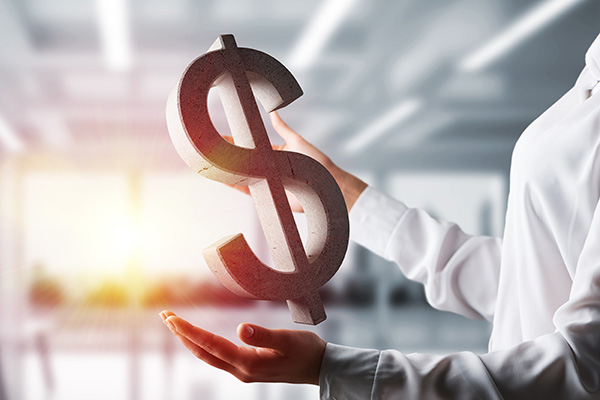
I don’t demonize any food. I’m not saying meat is evil or the enemy. I’ve never taken that tack in my life. For me, most people could benefit from eating more fruits, vegetables, legumes and nutrient-dense plant foods. I’m never about demonizing meat or demonizing animal products. The first thing that I’ve seen if you get organic, free-range leaner meats, that’s generally a healthier option. It’s hormone-free, antibiotic-free and locally raised. That was a step that I took many years ago.
Many friends that I know who are omnivores chose that lifestyle. They choose that because that’s healthier across the board. If you wanted to have nutrient-dense, protein-rich meals, it’s about the substitution. There’s a lot of amazing brands out there. Some of them are more processed than others. It depends on where you on the scale of wanting processed foods. I’m a big fan of using a product called Tempeh which is a fermented organic non-GMO soybean cake. You can make a great chicken salad out of that. It tastes amazing. There’s tuna salad. You can grill it up like mini steaks and there’s tofu.
For people that are down with it, I’m a big fan of Beyond Meat. Some people are like, “It’s processed and it’s not a whole food.” Beyond Meat is a great product. What they’re doing in terms of creating protein-rich, soy-free, non-GMO, non-animal products is great. My girlfriend’s eating more plant-based. We’ll cook up some Beyond Meat meatballs. We’ll do burgers. I’ll do stews and chilis with her and put some of their ground beef in it. There’s a lot of substitutes out there that are as nutrient-dense, as protein-rich, as the animal-based versions. Gradual substitution or just doing 1 or 2 meals a week where you’re adding those substitutes in is a good thing.
Beans and legumes, you look at chickpeas, black beans, navy beans, any of those things are super nutrient-dense and super-rich in protein. Having been a teenage boy once who was an athlete and would also eat with my mom out of the house and at home. I remember that period, I couldn’t get enough food. It’s not just about nutrient density but caloric density because if they’re moving their bodies and their bodies are growing at an exponential rate when they’re teenage boys, you want to make sure that you’re getting calorie-dense foods. If I think about calorie-dense foods, I think about nut butter, avocado, olives and fatty or more calorie-dense foods where they give you that level of satiation but they’re also healthy for you. Healthy fats are a win. I’m a huge fan of healthy fats.
If you want to have nutrient-rich substance meals, it is really about substitution. Share on XThat’s interesting about Beyond Meat because not to be a devil’s advocate but I did see something where it said that Beyond Meat burger has the same fat content as a Big Mac. How do you feel about the fat content? You said it’s healthy fat.
First of all, being calorically dense, any kind of fat is going to take more energy and effort for you to burn. I want to say that in terms of we’re burning calories. Because fats are denser in calories, they’re going to take more energy and effort if you’re in the gym or you’re doing a run to burn those calories. In terms of nutrient value or healthfulness, if we look at the type of fats that are out there, we have saturated fats and monounsaturated fats. If you look at saturated fats, many of those are the ones we talk about in McDonald’s fast food. We talk about trans-fatty acids which are partially hydrogenated oils. Those fats are not as equal to the fat that you would get from avocado, soy, olive or sesame seeds.
If we’re talking about fat and fat content, we need to be mindful of the type of fat we’re consuming because it does make a difference. If you’re eating plant-based fat or monounsaturated fat, your body isn’t going to process it the same way as it would. It’s not going to have the same level of inflammatory effect on the body as something as saturated fat or partially hydrogenated fat would have. Those are the things you see in fast foods and processed foods. I know that from the research I’ve seen. Dr. Joel Kahn is a great resource for this. He’s a Detroit-based vegan, world-leading cardiologist. He has a lot of information on the difference of how plant fats affect the heart and the blood versus hydrogenated or animal fats do. A hat tip to Dr. Joel Kahn if you want to dig into his research.
I wish that article had said that. The same as a Big Mac, I was like, “I don’t want to have that,” but that totally makes sense. Dena?
I’m also a fellow Detroiter. I grew up in coney and I still love my Greek self. One of my daughters decided to give up red meat for the environment. I have been challenged to create meals for everybody to enjoy outside of the red meat. I’m a big Googler and what I found was a quick and easy one-pan meal. I ran into the feeling that they were all these plant-based side dishes. I want to know from you, how do you make them a meal? Do you do lots of side dishes?
It is a prototypical thing where you see at holidays like Thanksgiving, in particular. It’s like, “Green beans and mashed potatoes.” Things like that are all vegan but how do you make a vegan turkey? It’s like, “What do we do with that?” This is interesting. Most of my family is still in Detroit. As a side note, my mom, aunt and two cousins are vegan now which is crazy. I get questions all the time, “You’re in LA. It’s easy to be vegan in LA. What about Detroit?” I lay on them that my mom and five of my family members are vegan. They’re like, “How do they do it in Detroit?”
What we figured out over the years doing this together as a family which I realized is uncommon. For me to say that a lot of my family members and I are vegan, I’m the exception and not the norm in that way. What we’ve figured out is how to use things like Tempeh which is a high-protein, non-GMO, organic soybean and tofu. You can put these in a food processor and combine them with rosemary, thyme, oregano, spices, salt and pepper. We’ve figured out a way to oven-bake these into what they look like turkey breasts. We make mushroom gravy, mashed potatoes and do all these things. Maybe I need to email you some good recipes. Having done this for many years, I have a trove of tested recipes.
The difficulty is that there are many recipes out there now, not just vegan recipes but if we look at the culinary industry in general you can Google millions of recipes. The trick is how you know what’s good. This is the tough thing for anyone regardless of how you eat out there, the readers or any of you goddesses, you’re out there Googling recipes and you’re like, “Is this going to be good or is this going to suck? Is this going to be the thing where I spent all this time, all this money on making this recipe and then I try it and I’m like, ‘This is not good?’” It’s tough zooming out on the whole culinary world in general.
For me, to make the main dish is learning different skills and how to leverage different plant-based products. When we call it “vegan turkey” or when we do vegan ham or vegan seafood, it’s never going to taste exactly like the thing. I want to dispel that myth right away. You’re never going to bite into and go, “This tastes exactly like turkey.” You can get some things that are close in terms of texture, mouthfeel and flavor.
It’s learning how to increase your skills in the kitchen and experiment with new ingredients to try and get those main dishes down. In terms of the main dish, I always think of something hearty and rich in protein. I’m happy to email anybody else who wants some recipes from my bestselling cookbook that came out. I have about 300 recipes on YouTube as well where a lot of them are main dishes. My recipes are good.
They are. I’ve made a bunch of them and including my watermelon salad that I still need to dive into. I’m still eating plant-based but I fall off the wagon a little bit because I went to a friend’s and she had cheese and I was like, “I want some real cheese.” I had a little piece of cheddar. Cheese is addicting. I did see somewhere how addicting it is. It was like crack cocaine. Not that I’ve done crack cocaine. I was eating this cheese and I brought real cheese back into my life. I remember doing this emergency text to Jason saying, “Please tell me some good vegan cheese because that was something I was craving.” I’m still experimenting.
We had a guest on the show, Joelle Rabion. She is a nutritionist and she was talking about O-positive blood type and how she’s that. I turned out to be that and how animal protein is good to incorporate into your diet for that. I remember texting you about that. Also, B12. I started to get all these messages and think, “I’m craving these things.” I did add some chicken and fish back into my life. It didn’t last long. I don’t know if I gave you a follow-up. I had some chicken a little bit and then I was like, “I don’t like this texture anymore.” I was used to Tempeh. There’s a great deli here and I don’t know if you guys have tried it called Sam & Gertie’s. They have vegan pastrami sandwiches and they’re good. My question is all over the place but B12, O type and adding meat back in. I’m on that teeter-totter in my life and I’m not sure where to go. What are your thoughts about that?
It is important to acknowledge that our individual makeup is different than anybody else’s. It’s interesting because on the one hand, if we look at humanity and the amount of DNA, if we want to go back to Science, our human origins and these interesting research studies, we can trace humanity back to a single African woman genetically. I can wax poetic and philosophical, if we look at the common humanity, it feels we’re in such a divisive, charged moment in human society for many reasons. To me, if I think about the fact that we are similar genetically and we honor our similar origins, in my mind, that brings us closer together and we have a common humanity.
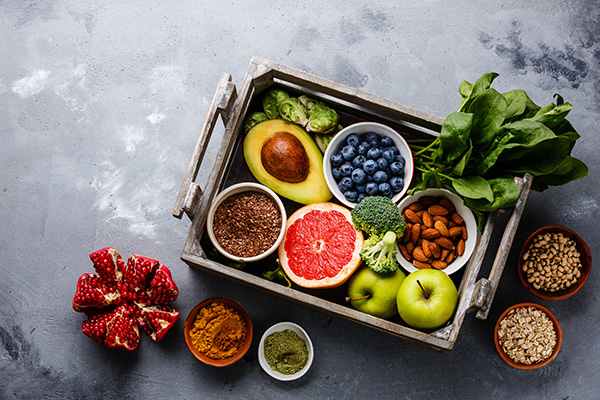
There are enough variations genetically. One thing that I encourage people to do in my coaching is 20 to 30 minutes after you eat a meal or maybe even sooner depending on how sensitive your body is if you get quiet and pay attention to like, “Do I feel good after I eat this meal? Is my digestion good? Do I have energy? Does my mind feel clear and focused? Do I feel like crap? Do I feel foggy? Do I feel heavy? Is my gut gurgling and not digesting well?” If we learn to slow down and pay attention to what our bodies are telling us after we eat food, we can develop an intuition of what makes us feel good and what doesn’t.
Many of us are busy rushing through life. There’s so much anxiety and stress. I get it. Some people are in this mode of like, “We got to survive.” I’ve certainly been in that mode myself for different reasons too. To slow down and pay attention to what our minds and bodies are telling us is crucial in terms of developing an intuition around food. As we develop that intuition around food, “I felt intuitive like I wanted to have cheese, chicken and fish.” We have to be willing to experiment with our bodies, food, workouts, meditation, spirituality or whatever aspects of life we’re feeling called to explore.
Answering that signal is vital for our development as people. That’s going to be different for every single one of us for a variety of reasons. No matter what I do, how I eat and how I live, I always want to honor people’s individuality, their journey and the sense of curiosity and experimentation. On a cellular level, every seven years, we’re regenerating ourselves. Meaning that the bodies we’re in on a cellular level are different cells than they were before. You have a completely different body cellularly than you had seven years ago. There’s a regeneration period that occurs biologically every seven years.
My mind always goes to, “If I’m a completely different mass of cells because my body has regenerated itself in a seven-year cycle then how could exactly how I eat, work out and live to be the same as it was seven years ago?” Honoring the journey of transformation and what we need as we age, our hormones and our bodies change, for me at 43, the same way I ate exactly when I was 18 or 20 years old has changed even though it’s still plant-based. How I eat, live, move my body and think about life is different than it was years ago.
We have to honor bio individualities. Share on XMy overall answer is that I’m glad you’re honoring your journey. For all of you ladies, goddesses and readers, the changes are normal. The evolution of who we are as people is normal and we’ve got to honor that. We’ve got to be willing to experiment and try things differently. You bring up B12. There are certain nutrients that are more difficult to get if you’re eating a fully plant-based diet. There are foods that have B12 like nutritional yeast, spirulina, chlorella and microalgae.
D3 is also somewhat challenging if you’re not getting a lot of sunlight. K2 is also a challenging supplement. If you know what to eat or if you take a high-quality supplement, that’s a good way to get it. People are like, “Veganism can’t be healthy if you got to take supplements.” Everybody I know takes supplements regardless of how they eat. Taking supplements isn’t just a vegan thing. Everybody that I know in my life, regardless of their lifestyle, takes supplements. For longevity’s sake, taking supplements is a good idea.
I started to get B12 shots which helped with energy, for sure. Thank you, Jason. Camille?
Piggybacking on all the different cravings that you were saying, I feel the same thing as far as cheese, certain comfort foods and vegan turkey. Are there any traditional or comfort foods that you tend towards? I was also thinking for myself. I can’t eat soy because I have fibroid issues. I’m sure I’m not the only woman out there that might. With everything that you’re mentioning, “I can eat that.” I’m wondering also on that aspect if you could bring in a little bit for that too?
You talk about not just food sensitivities, food allergies are certain and preconditions that don’t allow you to eat certain foods. That’s tough in general. It’s funny we talk about cheese. I’ve been allergic to dairy my whole life. About 2 or 3 years old, my mom figured out that I would have violent reactions to dairy products. That was tough because growing up in the ‘70s and ‘80s, you couldn’t go to the corner store and get vegan ice cream. That was not an option. For me, I’ve always had the issue my entire life of trying to figure out how to enjoy things while being violently allergic to dairy. Now it’s easy, in the sense that I can go pick up coconut yogurt or almond yogurt or almond milk.
In any metro area, you can find a lot of non-dairy options but growing up, that was tough. To answer your question in terms of comfort foods with the holidays and things like that, I’ve learned to get creative with potatoes. For me, whenever I think about comfort food for some reason, I crave potatoes like scallop potatoes, mashed potatoes, candied yams and sweet potato pie. I don’t know why but sweet potatoes and regular potatoes, I go crazy. I eat like my body weight in potatoes. I figure out all kinds of creative ways to use potatoes.
All the carb people out there are like, “I don’t need carbs.” All the Atkins people we lost all of them. Even myself, I’m like, “I’ve been on a carb diet since I was fifteen.”
You also mentioned not being able to eat soy. Two of the highest sources of plant-based protein are beans and legumes. You look at chickpeas, black beans, navy beans and adzuki beans. Here’s the thing too. Some people are like, “I can’t eat beans because they give me flatulence.” Here’s a quick culinary secret to any bean. This is the best thing. There’s a seaweed out there called kombu. You can pick this up at an Asian market. They also have it at Whole Foods or any natural food. What you do is you take one strip. It’s like a wide, broad seaweed. Whenever you’re cooking beans, what you can do is take a strip of this kombu and put it in there.
There’s a brand that already does this called Eden Foods. They already cook their beans with kombu if you want to get a can and you don’t want to cook beans from scratch. Whether you’re buying the canned beans from Eden or you’re making them from scratch, there’s a compound in the kombu seaweed that deactivates the flatulence-creating capabilities of beans. It’ll remove the gaseousness. You eat the beans and they don’t make you fart. That’s a little culinary tip if anyone’s like, “Beans don’t feel so good.” They make them easier to digest and they remove the gashes effect. Kombu is the secret to making great beans.
We’re going to change the lyric, “Beans good for your heart. Add the kombu and you will not fart.”
I’m curious how you feel about the whole bulletproof philosophy and because of that, I have the high octane oil that I put in my coffee every morning or my tea. I cook with a ton of butter. When I make the eggs for the boys, I’ll use two tablespoons of butter. I keep thinking I’m just helping everything run more smoothly in their bodies and filling them with that. What’s your thought on that? I’m curious.
I think of bio-individuality. Rachel, I’m a big fan of blood panel testing and here’s why. We talk about bio-individuality, depending on your geneticsm, how your body processes animal fats and cholesterol as an example. If we look at things like grass-fed butter or ghee, there are benefits to it in the sense that it has the ability depending on bio-individuality. It can increase healthy amounts of progesterone in your body. Some people are deficient in progesterone. It is a healthy hormone to have for your body to function. We don’t want to have super low levels of progesterone.
Grass-fed butter and ghee, which is the Ayurvedic Indian version of their clarified butter, helps to elevate levels of progesterone in your body which is good. You want to have healthy, balanced hormones. I’m not going to say butter is 100% bad for you. If you have heart problems or you have already elevated levels of cholesterol butter may not be a good choice. That’s why I wanted to bring up the concept of blood panel testing. Every few years, I go see my physician here in LA. He runs what is called a blood panel test, which not only shows me my vitamin levels, nutrients, cholesterol, hormones, lipoproteins, any biological markers and any genetic function. He looks at the end of the amount of testosterone, estrogen and progesterone in my body.
I would recommend it if you are curious about what’s happening in your body and how you want to optimize. I do this for two reasons. Number one, it’s hard to guesstimate what is happening in your body from a nutrient perspective unless you go and get a blood panel test. It’s hard to say, “I might need more B12. I might need more progesterone. I might need to lower the amount of cholesterol-laden foods.” We don’t know that unless we go get our blood drawn and our urine tested and see what’s going on inside our body from a biological perspective. I’m a huge proponent of every 3 to 5 years going getting a blood panel test. Rachel, the long answer is if you and your boys and your family are good with butter and you feel energized on it, maybe you want to go get a blood panel test to check your cholesterol and your lipoprotein levels and see how it’s affecting you. It’s an individualized thing.
I like Dave Asprey. I’ve lectured with him at different health conferences. We agree on more than we disagree on. This is a big thing that I want to talk about. People are often like, “The vegans are wrong and keto’s right. Keto is wrong and paleo is right. No, you should eat a fruitarian diet.” There are many different ways that people say humanity should live. It goes back to radical experimentation. Rachel, you mentioned MCT oil, the high octane oil. I put that in my tonics all the time. I love MCT oil because of its fat-burning capability and the fact that it turns our brains on. I feel great when I take MCT oil. Dave and I agreed on eating whole foods, locally grown foods, organic foods, mitigating EMFs in our life and not putting any chemicals in our bodies. If I talk to my friends that are into keto or paleo, we agree on a lot more than we disagree on. That’s also important to take into account.
Twenty to thirty minutes after a meal, get quiet and see how you feel so you can develop an intuition about food. Share on XRachel, did you want to add?
Everything that you’re saying makes sense to me. I started with a new doctor’s practice and it’s a holistic approach. She does a whole panel. Because I was deficient in B12 as well and in some other things, she even ran the panel three months later to see how my body was adjusting.
I’m glad you did that for yourself, honestly because it’s such a worthy investment in the sense that most people will be like, “I’m low on energy.” We keep talking about Whole Foods because it’s probably most top of mind. You go to the supplement section and you have a sales associate that’s like, “Here, take this energy supplement,” but you don’t know what you’re specifically deficient in. Maybe some people are spending hundreds of thousands. If you’re LeBron James who spends over $1 million a year on his body. As an aside, I’m a huge basketball fan. I was reading about LeBron James and his nutrition training protocol. That dude is serious. He spends over $1 million a year on food, nutrition, supplements and body care. I was like, “More power to you if you have the means.”
What I don’t want is people wasting their money in the sense of, “I might be B12 deficient.” Rather than going to the doctor and investing a few hundred dollars in a blood panel test then you know exactly what your body needs then you’re not going in throwing good money after bad. I say it’s trying to hit the bull’s eye on a dartboard with a blindfold on. “It could be vitamin C. It could be vitamin D. I don’t know what it is.” For anyone out there whether it’s you goddesses or the reader who wants to know what’s happening, find a good doctor in your area and get a full blood panel test so you can see exactly what’s going on. I’m so glad you did that, Rachel.
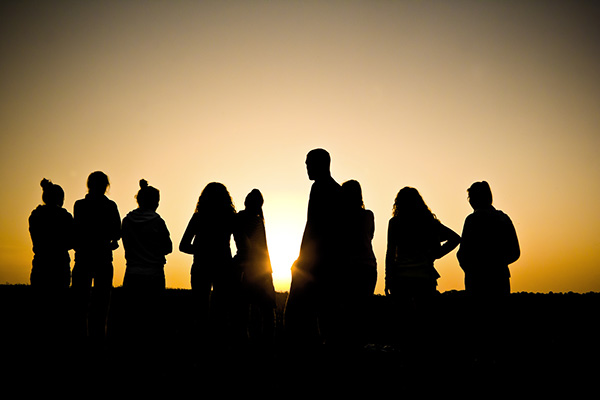
Thank you. Another trick, I was low in iron and now I cook in a cast iron pan which feels so much better to do than something that’s coated. My iron levels are much better now. I did the iron supplement for a period of time just to see. There are all these little things that you can be doing.
We talk a lot about tapping into our inner goddess and this is seeing what works for you and feels right. To measure that by getting the blood, I did that too and found out years ago that I was low in vitamin D. That was when I had my cancer diagnosis. I read some studies about that. I was telling the girls that it was somewhat related. Knowing that and being able to add a supplement of vitamin D into my diet was so helpful to me.
I’d like to step back and talk about your journey a little bit more. We know that you had a successful Food Network show and I know that it was one season and it wasn’t picked up. When I was reading about it, I found it so interesting because, at the time, the CEO or someone said, “People want burgers, bacon and beer.” It’s true but in a fact, maybe that was back in 2014. It might be different now. I read your blog about it. It seemed like you turned that into a silver lining. It was a roadblock and hard but you decided to embrace it. Can you talk a bit about that and perhaps if there were any other roadblocks on your journey?
That was a hard time in my life. I want to give a little bit of context to that because one of the things that I have been evolving into speaking more about has been mental and emotional health. I started a podcast called This Might Get Uncomfortable. The foundation of that with my co-host and my best friend, Whitney, is we talk about all the ins and outs of this often chaotic, confusing and glorious human experience. The foundation of what we talk about on the podcast is mental and emotional wellness and how challenging, diverse and complex that conversation is.
That was born, Karen, out of that year 2014 where my series of How to Live to 100 on Food Network and Cooking Channel got canceled. I broke up with my longtime partner at the time and my first book deal fell through. I was burnt out from working past the point of exhaustion for many years that I had a breakdown that year. I was diagnosed with clinical depression. I was suicidal that year. I’m being completely honest. 2014 was the hardest year of my life so far.
The silver lining in all that was the resilience of coming to such a dark place in your life that you don’t know how you’re going to come out of it, being at the bottom of the well. Finding the strength within yourself to climb out of your own well or your own personal hell. That was a tough year. That was hard for a lot of reasons but it was also a blessing. I was on this interesting track of having these managers, agents, PR people and doing these big tours around the TV series. There was all this talk about having my own line of cookware, spices and knives.
Camille, you talked about the entertainment industry. There are these formulas sometimes in the entertainment industry where they’re like, “We have this celebrity chef formula. We’re going to get you on the covers of magazines, a TV show, a PR person, an agent, a manager, a book deal. We’re going to get you all these product lines like Emeril, Guy Fieri and Rachael Ray.” There’s a formula that is put in place where you build a career and a brand.
We have a celebrity in everything. Celebrity chefs, real estate agents and repo people. I’m still waiting for celebrity garbage people like celebrity garbage man and real housewives of the garbage man. It’s crazy to me how we’ve celebritized everything in our culture now. We’re so obsessed with celebrity. The blessing was that I was making a lot of creative compromises along the way because I was hungry for it. I was like, “I’m going to be the next Anthony Bourdain, Alton Brown or Guy Fieri.” I was being groomed in that mold along the way.
To be honest, I was giving up a lot of my creative instincts and things I wanted to do for the idea of being famous. The silver lining was not only the recovery from that clinical depression and the dark place I was in emotionally and mentally but it was seeing that I was being molded and allowing myself to be taken by managers and agents of Food Network. I was suddenly and almost undetectably until I realized that it giving up part of my creative instinct and vision to have this carrot that they dangle because they’re like, “We’re going to make you all this money. We’re going to make you so famous,” and then the show gets canceled. Once the show gets canceled, everyone’s like, “We’re going to pull that deal.”
A lot came crashing down in my life after that show got pulled. If I look at it, I may have ended up in a spot where I was not happy with the outcome. It’s not that money is not great or fame is not great but if we sacrifice who we are in the process, that has the propensity to be a lonely place to be when you’re surrounded by wealth, money, fame and you’ve lost a part of who you are. I was headed down that track, to be honest with you.
When you introduced yourself, you talked about how you are evolving and you have interests. You don’t necessarily want to have to stay on a single path. It’s interesting because it’s so painful knowing that story and what you went through. It’s a beautiful end but where you started in describing who you are and that path was not the same.
It is this idea that you eat, sleep, breathe and be it. If you want to reach that level of Anthony Bourdain, Guy Fieri, these famous chefs that we know, having met some of them and seen their lives is an all-consuming thing. In that sense, you better be in love with it and some of them are like, “This is my passion. I eat, breathe and live this. This is all I want to do.” If I’m honest about it, it wasn’t an all-consuming thing for me. I thought it was for a while like, “I found my thing. This is my one thing. This is the thing I’m going to do the rest of my life,” but it wasn’t necessarily so. Life has shown me, “This isn’t what you’re going to do the rest of your life.”
Every seven years, on a cellular level, our bodies are regenerating. Share on XI go back to the beginning of this conversation about surrender, listening and realizing that maybe from a Zen perspective, almost like a Buddhist perspective, that uncertainty, change and not knowing what’s going to happen next are constants of life. I’m not a Buddhist but I appreciate a lot of elements of Zen Buddhism. We try to assume control and think we know what’s going to happen. I had no idea how this conversation with all of you is going to flow. We had questions but to end up where we’re at now in this conversation, we couldn’t have anticipated it. We have no idea what our day is going to be. We don’t know what’s going to happen five minutes from now.
These perceived failures or losses in my life that were so painful have been good teachers in the sense of like, “Let go of your expectations and the thinking you know what’s going to happen. Surrender to the constant change and evolution of life.” I still struggle with that sometimes. I still want to control things and certainty. Life keeps showing me, “You have little control or maybe none at all.” Who knows? Depending on what your philosophy is. “You don’t know what’s going to happen next so keep surrendering and letting go.” It’s a hard lesson but keep on learning it and it’s ultimately a good lesson.
I’m dumbfounded. You’re showing your vulnerability like this. I didn’t know that about you until I read that but I’m thinking back to our conversations. It’s a totally different comparison but I would be feeling down. I remember when I’m dealing with me feeling with this podcast that I had to deal with all these outside production types of things and I was like, “It’s getting off of my vision.” You were like, “Surrender to it. Perhaps have someone else do that part for you. That’s not what you’re interested in and what you’re passionate about but stick to what you’re feeling in your core.”
You’ve taken everything that you’ve learned in your life like with that experience in 2014 and you are using it to help others especially when you’re coaching me. I appreciate your vulnerability and sharing that story. I know it will help so many people who are reading. Understand that they are lessons. It sucks when you go through all that. It’s shitty and horrible especially with the pandemic and everything that we went through in 2020. Take a deep breath, look back and see what we can learn from it. I appreciate your sharing.
I know this might sound rote or cliche but there are so many days when I feel down for a variety of reasons like financial or emotional struggles. We are all fighting silent battles that we might not talk about publicly. There’s not a single person I know in my life that isn’t struggling or having some kind of challenge with the chaos and uncertainty that seems to be swirling all around us in this world. There are times when I will stand in the shower and I’m like, “Thank God I have clean water to bathe in, food in my fridge and a roof over my head where I know people are getting evicted left and right in the city.”
I know it might sound cliché but I practice that so often. I gratitude practice for the simplest things. “Thank you for food, clean water to bathe and drink every day.” I said this prayer one night, “Thank you for a bed, a roof over my head, my animal companions, for my family and me being healthy. Thank you for my friends being here for me.” The simple things this pandemic has reinforced to me like, “Take inventory and thank God for the small things because they are not small things. Those things mean everything.” Anything on top of that to me is gravy. Those simple gratitude prayers have helped keep me sane.
We want to thank you for joining us and sharing your plant-based knowledge, vulnerabilities of what you’ve been through, all the charities that you’re involved with. If our readers want to contact you for all the various hats that you have, how can they do that?
First of all, I’m putting a lot of energy into my podcast, This Might Get Uncomfortable so people can email me there. Our brand is called @Wellevatr on all the social media handles or people can go to Wellevatr.com. If they want to go to my personal website, it’s JasonWrobel.com. I have a great YouTube channel with a bunch of recipes and health videos. I’m easily discoverable.
Thank you, Jason, for joining us on the show.
It’s my pleasure.
We’re grateful to you.
—
It was just a comment in addition to the regular gratitude. Getting a COVID test for different things and I’m like, “I’m so grateful that even if I have to pay for a COVID test and I can’t get it for free or it’s not convenient, I can afford the test.” I’ve also had this running list of silver linings of Corona. Every time I think about something, I’m like, “Remember this silver lining because there are many disappointments and losses happening that you have to remember the silver linings.”
It’s also remembering that everything is temporary. I had a buddy of mine who was broke, done and like, “I got to leave LA.” It’s one of those things where you’re so broke like, “I got to move back home. I have nothing.” He moved back to the East Coast. We’re still in the pandemic and the economic, whatever the hell is going on, recession or depression. He’s like, “I got this amazing high-paying job.” He’s back home in Boston.
He’s completely broke, having to leave LA after so many years and now he’s got this amazing job. He loves it and they love him. He’s getting paid well. He’s bounced back. To your point, what I try to remind myself is that the winds, those moments of celebration and joy are temporary but so are the sorrow, loss and pain. I’m glad you said that because it’s a good reminder. It’s like, “This too shall pass. The good end of all of it.”
When you were at your deepest place and if our readers are feeling that, did you contact any type of hotline? Is there someone people can reach out to do you think?
To be blunt, I didn’t call one of the national suicide hotlines. It’s interesting to reflect back on it because I was planning out how I wanted to kill myself. I got to that level of not just thinking about it. I didn’t make an attempt but there was a moment in the kitchen where I was like, “Am I going to do this?” I was preparing to do it. If you’re sitting there and almost going to do it, you need to get help. That was the moment where I knew I needed to get help. It was beyond thinking about it. It was me preparing to do it.
Instead of calling a hotline, I called a mentor of mine for many years who’s older and more like a father to me than my father was. He’s like my dad. His name is Michael. I said, “Michael, I almost killed myself. I’m in a bad place.” He recommended a therapist. I immediately want to go seek a therapist. I was in a privileged position to be able to afford that. I know not everyone can afford to physically see a therapist but there are some apps I know online where they will connect you with an online therapist where the rates are more affordable, which didn’t exist back in 2014.
Whether someone needs to call a hotline or maybe they can take advantage of some of these apps to find an online therapist, I know some of those are more affordable options or even free options. I immediately sought out therapy. That was the first time I’ve ever got my blood panels tested. I got a neurotransmitter test back then. I got all my brain chemicals tested. I was low in dopamine, serotonin, epinephrine and 5-HTP.
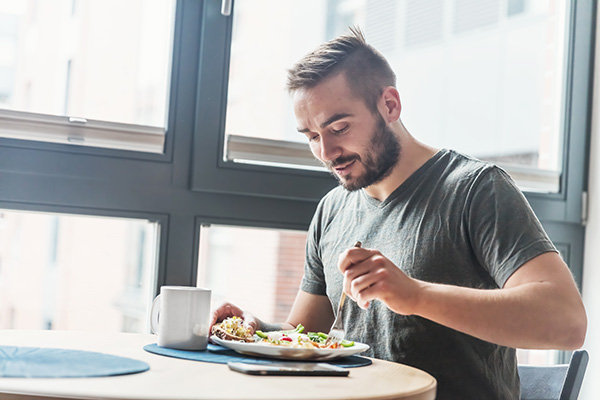
I remember my doctor said, “It’s no wonder you’re clinically depressed because if you look at your neurotransmitter levels, they’re all sub-optimal. It’s no wonder you want to kill yourself.” From a chemical perspective because I was so stressed, wasn’t eating well and was shooting the TV series, here I am talking about health and wellness. I’m neglecting my health and wellness. That was a massive wake-up call. For me, it was seeking out psychotherapy, going to get my blood panels tested and work on healing my brain chemicals.
—
Welcome, everyone, to Favorite Things with our guest, Jason Wrobel. We are going to talk about our favorite things, things that bring us happiness, joy, are yummy and make us feel happy because we know that the more that we focus on those things, the more we will attract into our life. I would like to start with a delicious buttery spread. It is not butter. Jason, you may know this. It’s called Milkadamia. Are you familiar with this?
Their macadamia milk is so creamy, rich and frothy.
That was in my latte but I was able to sneak this upstairs. I’m sure my husband is going crazy trying to find it to put on his vegan eggs. We love this. Rachel, if you’re looking for a butter substitute, it’s so good, tasty and clean. It’s a macadamia oil blend. It’s yummy. That’s what I wanted to share. Camille, you’re up.
My father being pescatarian for Father’s Day one year, I wanted to make him breakfast in bed so I made him a fancy omelet. I probably was 12 or 13. I’m not a cook at all, mind you. I went in the fridge, grabbed all the vegetables I could and throw them into the omelet. He ate all of it, which is a sign that he loves me. As an adult, once I realized how bad of an omelet it was, it made me appreciate how much he must love me to have eaten all of it. There are cucumbers, tomatoes, carrots and radishes. None of them are precooked. I didn’t cook them first and throw them in. I just diced them up and throw them in there like, “Vegetarian omelet.” It was horrible and I feel bad. I’m glad he survived and I love him.
Thank you for sharing. Maybe you’ll write a cookbook.
I’ve had a fire boiling water during the pandemic.
You’ll have to get Jason’s cookbook. Dena?
I don’t even know how much of this I’m eating. It’s called Slim Kim popcorn and it’s gluten-free, non-GMO, heart-healthy, no trans fats, peanut-free and popped in coconut oil. It was at Mariano’s. They had a huge gas of it. I had to order it online and it’s local. It’s a women-owned company. I highly recommend trying it. It’s so good if you love popcorn.
Jason, what’s your favorite thing?
I’ve worked with these guys and they’re one of my favorite brands out there. They sent me something super cool that I totally love. There’s a brand out there called the Elmhurst. It has a super unique story. They’re the oldest running dairy producer in New York State. They’ve been around since the early 1900s. A few years ago, they transitioned from cow dairy to being a fully plant-based manufacturer. It’s the only company in the world I know of it. This is a massive brand. Talk about a risk, everyone knew Elmhurst for their cow’s milk and then they completely flipped. One hundred percent of their entire product portfolio is into plant-based milk now.
Everything is temporary, including the wins. Share on XThey came out with a homemade soft serve ice cream mix, not scooped. It’s not like you get your pint, sit on the couch, watch your favorite Netflix show and do your thing speaking from experience. I was like, “How are they going to pull off the soft serve?” The Elmhurst soft serve mix comes in vanilla or chocolate. What you’ll do is so easy. You chill this in the fridge and then you can pour it if you have an ice cream machine which not a lot of people I know have an ice cream machine or you can get this inexpensive Zoku ball and you put this in the freezer. All you’ve got to do is take the soft serve mix and pour it in the Zoku bowl and whip it. It makes instant soft serve ice cream. It is unbelievable. Anybody out there who has a dairy allergy, even if you don’t have a dairy allergy, it’s creamy and thick. It’s crazy how good this is.
Can you order it online?
You can. This comes with room temperature and they send you a pack of them. They also have on the Elmhurst website where you can buy a gift pack with the frozen Zoku bowl. All you’ve got to do is pop the ice cream mix in the fridge and the Zoku bowl in the freezer then you whip it up in the bowl and it’s done. It’s the easiest thing ever.
I’m excited because another item that’s so hard to find is a good-tasting soft serve ice cream.
When you make it home, it’s like next level.
Rachel, I’m so curious what your favorite thing is.
My favorite thing is the blouse that I am wearing. It’s this rubbed poly chiffon material. It’s a vintage blouse from the ‘70s. I was texting with the owner of the vintage store. It’s this bright pink color that I always think of as my power color. It just brings me joy. I love the whole repurposing. It’s from a collection of a woman that I relate to. I’ve bought a lot of her clothes.
That goes along with my Grateful Goddess vintage bubble letter T-shirt, my roots to Grateful Goddesses years ago and my coach, Jason Wrobel, who I highly recommend. Please reach out to him for anything coach-related. He’s got so many hats and he is truly a grateful goddess of all kinds. Thank you for joining us on the show.
—
Jason Wrobel is the bestselling author of the Hay House cookbook and lifestyle guide, Eaternity. As the first-ever plant-based chef with the primetime television series, his groundbreaking show, How to Live to 100 on Cooking Channel and Food Network Canada taught millions of people how to prepare delicious organic, healthy meals at home. Described as the love child of Jim Carrey and Alton Brown, he infuses his live events, videos and teachings with a relentless drive to grow in a light-hearted joyful approach to health and wellness. Thank you, Jason.
Important Links:
- Jason Wrobel
- Little Love Rescue
- The Martha Project
- Beyond Meat
- Dr. Joel Kahn
- Joelle Rabion – past episode
- Sam & Gertie’s
- Eden Foods
- Dave Asprey
- This Might Get Uncomfortable
- @Wellevatr
- JasonWrobel.com
- YouTube – Jason Wrobel
- Milkadamia
- Slim Kim
- Elmhurst
- Hay House – Eaternity
- Eaternity
About Jason Wrobel
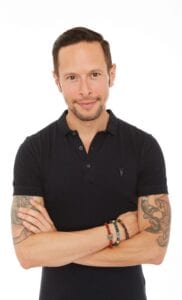 My purpose is to contribute my passion, experience, talents and wisdom to a world that desperately needs more healing, compassion and unconditional love.
My purpose is to contribute my passion, experience, talents and wisdom to a world that desperately needs more healing, compassion and unconditional love.
To co-create a community of conscious, effective global citizens who embody positive communication, intentional self-actualization, creative contribution and the practice of presence.
Basically, to support you in becoming a big-hearted, badass, healthy, happy superhero who unabashedly shares their gifts and realizes their ultimate potential for contentment.
Together We Can Change The World.
Love the show? Subscribe, rate, review, and share!
Join the Grateful Goddesses Community today:
